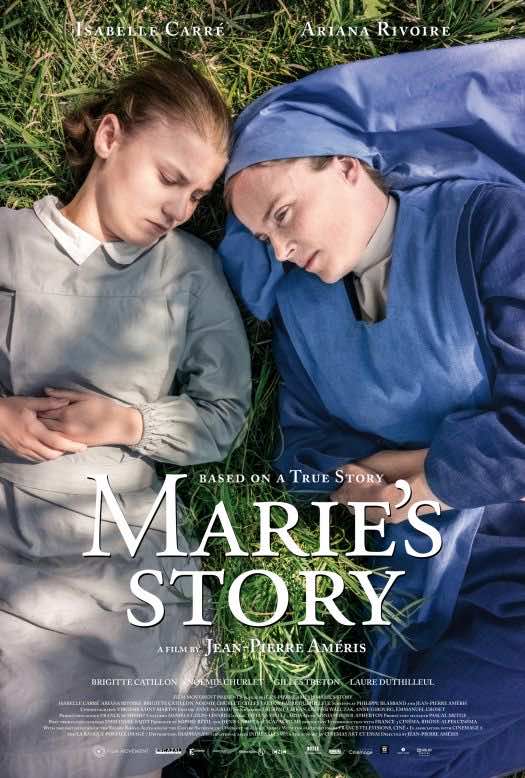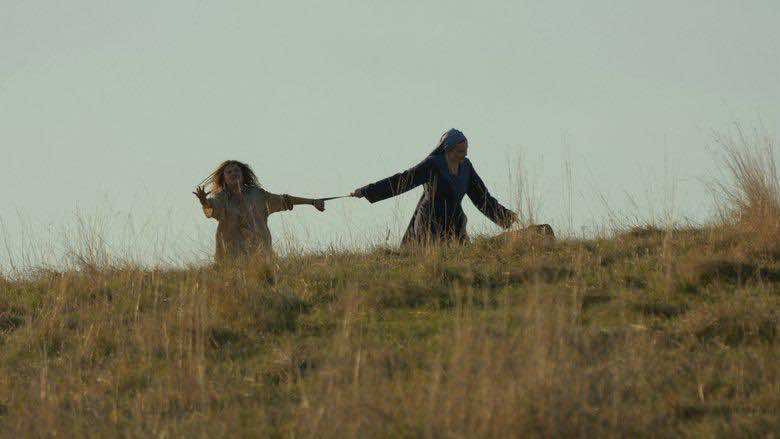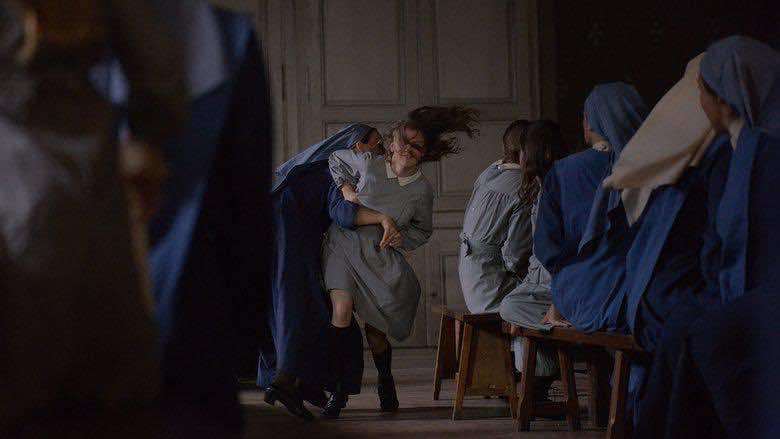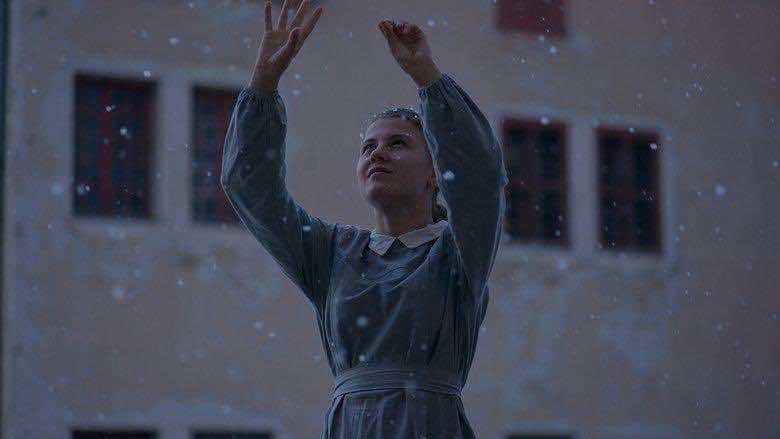 Most everyone knows the true story about Helen Keller: In late 19h century Alabama, a near feral girl, who is deaf, mute and blind, grows up to become a published author after being educated by a teacher named Anne Sullivan who came to be known as “the Miracle Worker.” The Miracle Worker was also the name of the 1962 movie starring Anne Bancroft and Patty Duke directed by Arthur Penn, based on William Gibson’s play. After the director and the actresses all won Oscars, The Miracle Worker became a classic.
Most everyone knows the true story about Helen Keller: In late 19h century Alabama, a near feral girl, who is deaf, mute and blind, grows up to become a published author after being educated by a teacher named Anne Sullivan who came to be known as “the Miracle Worker.” The Miracle Worker was also the name of the 1962 movie starring Anne Bancroft and Patty Duke directed by Arthur Penn, based on William Gibson’s play. After the director and the actresses all won Oscars, The Miracle Worker became a classic.
Now comes Marie’s Story, which is based on a similar true story from around the same era. Just as the story of Helen Keller was making waves, there was “A French Helen Keller” (read an original news report by the Sacred Heart Review in 1909). The impoverished parents of 10-year-old Marie Heurtin didn’t know what to do with their daughter who was born blind and deaf and could only grunt and scream. They loved her and didn’t want to see her institutionalized, so they brought her to the sisters of La Sagesse at Larnay, who specialized in boarding and educating deaf girls. Sister Marguerite was credited for taking on the challenge of this girl with more handicaps than the convent was used to. Eventually, Marie became a teacher for other girls with her condition.
 So is it worth anyone’s while to see the story of Helen Keller again in French and with nuns? The answer is simple: it sure is when you have such a fine example of astute, powerfully moving filmmaking. Even if you know what happens, Marie’s Story is guaranteed to move you to tears, and you won’t feel manipulated by it. Director Jean-Pierre Améris, who also co-wrote the script with Philippe Blasband, tells the story in three distinct acts that are tightly woven together and never wastes a single detail.
So is it worth anyone’s while to see the story of Helen Keller again in French and with nuns? The answer is simple: it sure is when you have such a fine example of astute, powerfully moving filmmaking. Even if you know what happens, Marie’s Story is guaranteed to move you to tears, and you won’t feel manipulated by it. Director Jean-Pierre Améris, who also co-wrote the script with Philippe Blasband, tells the story in three distinct acts that are tightly woven together and never wastes a single detail.
We first meet Sister Marguerite (a charming Isabelle Carré), who we are immediately showed suffers from a terminal illness. She can barely contain her excitement about the impending challenge of Marie (Ariana Rivoire, who is deaf in real life). The mother superior (Brigitte Catillon playing stern with low-key curiosity and patience) expresses her doubts and concerns for Marguerite, wiping blood off the sister’s nose, as she smiles about the upcoming challenge of Marie, who is 14 in this story. There’s a sense that the nun needs this to fulfill a purpose in her shortened life.
The film spends much time showing us the frustration of Marguerite but also a stubborn patience full of grace. Rivoire throws her body into her role in impressive tantrums that sometimes end in her escaping up a tree. The beautiful period setting of the countryside enhances the earthy battle between these two women. Sometimes the music by Sonia Wieder-Atherton even turns light and bouncy, cutting the tension with a sense of humor.
 Eventually, the breakthrough scene will arrive, but it doesn’t come without Améris showing us great effort by teacher and student. There are times when both seem to exhaust one another into giving in. But ultimately, the teacher wins not by forcing Marie to learn but showing her how she might be able to help herself. The breakthrough comes by empowering Marie, and its refreshingly convened with action, and does something wonderful in its message and storytelling: It speaks not to Marie’s handicap but her autonomy.
Eventually, the breakthrough scene will arrive, but it doesn’t come without Améris showing us great effort by teacher and student. There are times when both seem to exhaust one another into giving in. But ultimately, the teacher wins not by forcing Marie to learn but showing her how she might be able to help herself. The breakthrough comes by empowering Marie, and its refreshingly convened with action, and does something wonderful in its message and storytelling: It speaks not to Marie’s handicap but her autonomy.
Améris doesn’t beat you over the head with this, as he mostly keeps his camera at a distance. The power of the film never needs heightened scenes with music (as charming as it may be at times) to make you feel for these women. What happens between them is intimate and handled low-key. Similarly, we are not constantly reminded of Sister Marguerite’s illness, but we know it’s there after that initial scene when we meet her, and her mission on earth becomes something more than a quest to do good before she shucks off her mortal coil.
 When her illness forces her into bed rest, Marguerite must teach Marie one last important lesson: the permanence of death. It’s a mind-blowing concept in the Christian world of this film. Even the Mother Superior comes out to share that death is a painful thing and no amount of faith can make it any less painlful. Yet, still Marie can come to grasp it, mourn it and celebrate the time she had with her teacher. It’s a beautifully shown revelation that never feels cloying. So many Hollywood films wring the hell out of these moments, but here is a film that can show you how to do it right, so even if you think you are familiar with this story, it’s worth watching again to see how filmmakers, including actors, tell it in the most surprisingly delicate manner that never betrays or affronts its potency.
When her illness forces her into bed rest, Marguerite must teach Marie one last important lesson: the permanence of death. It’s a mind-blowing concept in the Christian world of this film. Even the Mother Superior comes out to share that death is a painful thing and no amount of faith can make it any less painlful. Yet, still Marie can come to grasp it, mourn it and celebrate the time she had with her teacher. It’s a beautifully shown revelation that never feels cloying. So many Hollywood films wring the hell out of these moments, but here is a film that can show you how to do it right, so even if you think you are familiar with this story, it’s worth watching again to see how filmmakers, including actors, tell it in the most surprisingly delicate manner that never betrays or affronts its potency.
Marie’s Story runs 94 minutes, is in French with English subtitles and is not rated (it doesn’t feature any offensive material). It opens this Friday, May 29 in our South Florida area at the MDC Tower Theater. It maybe playing in other areas of the U.S. or coming soon. For a list of theaters showing it, visit this link. Film Movement provided a DVD screener for the purpose of this review.









